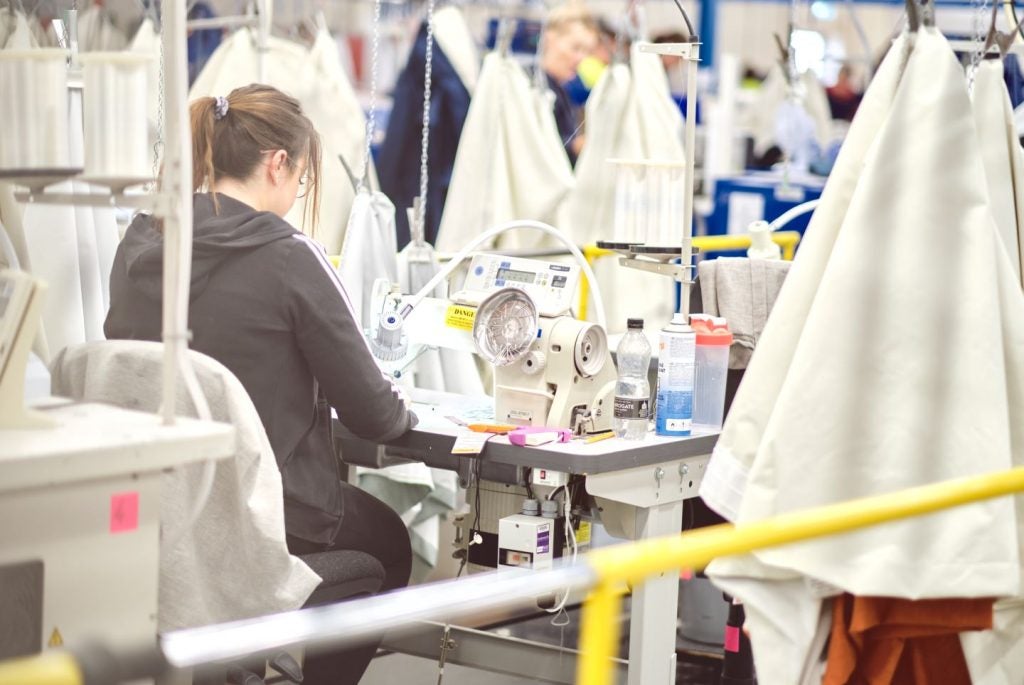The assessment of SME manufacturers in the UK is compiled quarterly by inventory management software brand Unleashed and based on data from every purchase, sale and stock movement made by over 1,790 manufacturers over the last six years.
Of all manufacturing categories, clothing suffered the sharpest decline.
David Waugh, from corporate clothing supplier the Waugh Group in Hampshire, said: “The current climate makes it difficult to do business – and the uncertainties and pessimism of the past few years still exist. There’s still a lingering national self-doubt that dims our expectations and future progress generally.”
However, the index also revealed a marked improvement in year-on-year performance for clothing – with revenue up by 14% compared to the same period last year.
The index also revealed that those who’d invested in eCommerce were reporting strong returns.
UK firms have diversified into B2C eCommerce too, with over two-thirds (68%) using or having used a platform like Amazon, Shopify or WooCommerce to sell online.
Joe Llewellyn, GM of Cloud ERP at The Access Group, the parent company of Unleashed, said: “While it’s disappointing to see revenue drop so much in Q1 2024, the year-on-year improvements are a sign that the clothing industry is in a stronger place than it was previously.
“We know from speaking to SME manufacturers how important technology is in driving operational efficiencies and diversifying their sales channels, and these investments are starting to bear fruit.”
According to the research, the manufacturing industry as a whole has cut lead times down to an average of 20 days – having already hit a five-year low in Q4 2023.
Llewellyn added: “Inflation has battered the manufacturing industry – but the short lead times we see today are a small reprieve and a sign that they’re in control of one of their biggest costs, their inventory. This will help them to remain resilient and take advantage of more favourable economic conditions in the future.”









